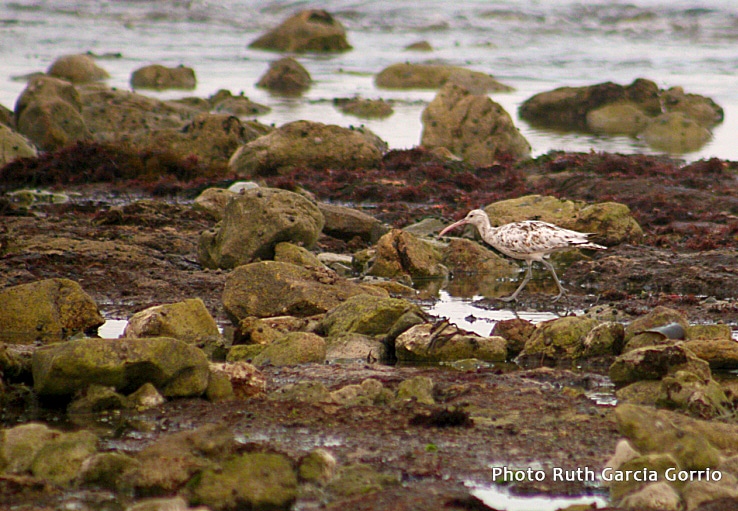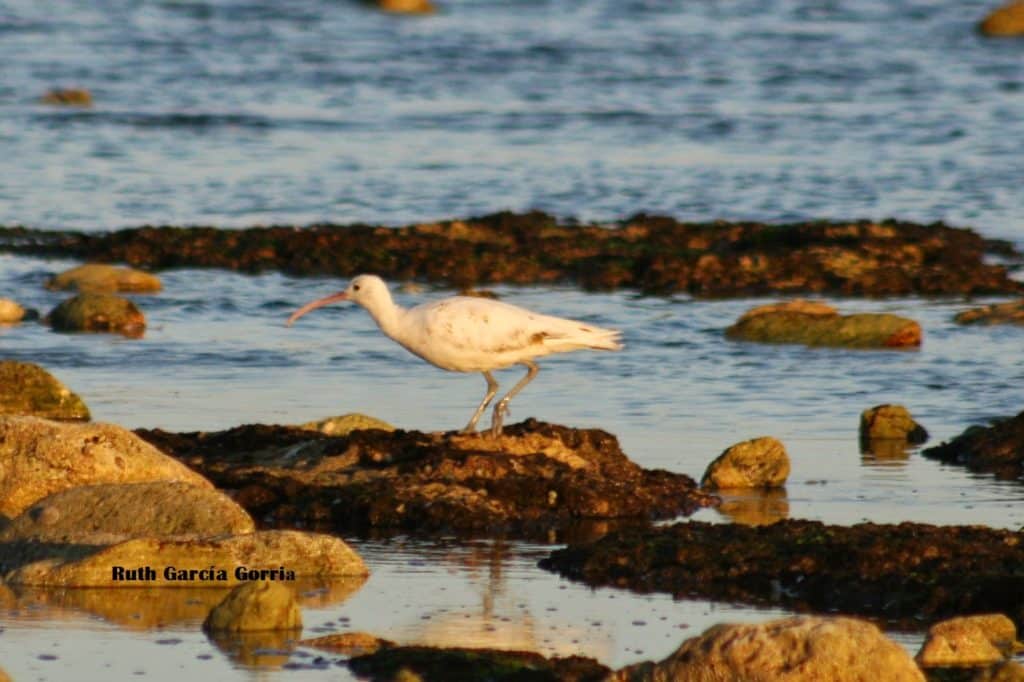Can a non-marked wader be relocated months after first sighting? Well, this is possible in only few cases including when the bird is leucistic and is alone in the region (so easily identifiable).
This is the case of a leucistic Whimbrel (Numenius phaeopus) photographed for the first time in the intertidal zone between El Jadida and Sidi Bouzid by Ruth García Gorria on 17 October 2014 (photo 1).
On 13 February 2015, Ruth relocated the leucistic bird again in the same site (photo 2), and commented that “the plumage is much whiter now”.
This is a quasi-experiment as the bird was photographed before and after the moult, commapre the photos.
On the other hand, the partially leucistic Common Coot (Fulica atra) is always present at Sidi Moussa lagoon where it was first observed and photographed in October and November 2014.
Un Courlis corlieu leucistique devient ‘plus blanc’ après la mue
Un Courlis corlieu leucistique photographié par Ruth García Gorria pour la première fois le 17 octobre 2014 dans la zone intertidale à la sortie d’El Jadida vers Sidi Bouzid (photo 1).
Le 13 février 2015, Ruth a revu l’oiseau dans le même endroit (photo 2), et a commentée que “le plumage est beaucoup plus blanc maintenant”
D’autre part, la Foulque macroule partiellement leucistique est toujours présente à la lagune de Sidi Moussa où elle a été photographiée pour la première en octobre et novembre 2014.
Thanks Ruth for these observations!


Hello,
I saw a completely leucistic Whimbrel in January 2011 in the tidal flats between Skhirat and Temara. Stunning appearance. The same bird or coincidence? Unfortunately I didn’t take a photo.
Regards,
Wolf
Thanks Wolf for the comment. I think it’s a coincidence because your bird was in 2011 and the bird above was not ‘completely white’ when first observed in October 2014.
I have added your observation to the blog-post where I try to compile cases of leucism and other colour aberrations found in Morocco:
https://magornitho.org/2014/10/leucistic-birds-morocco/
Best regards,
Mohamed